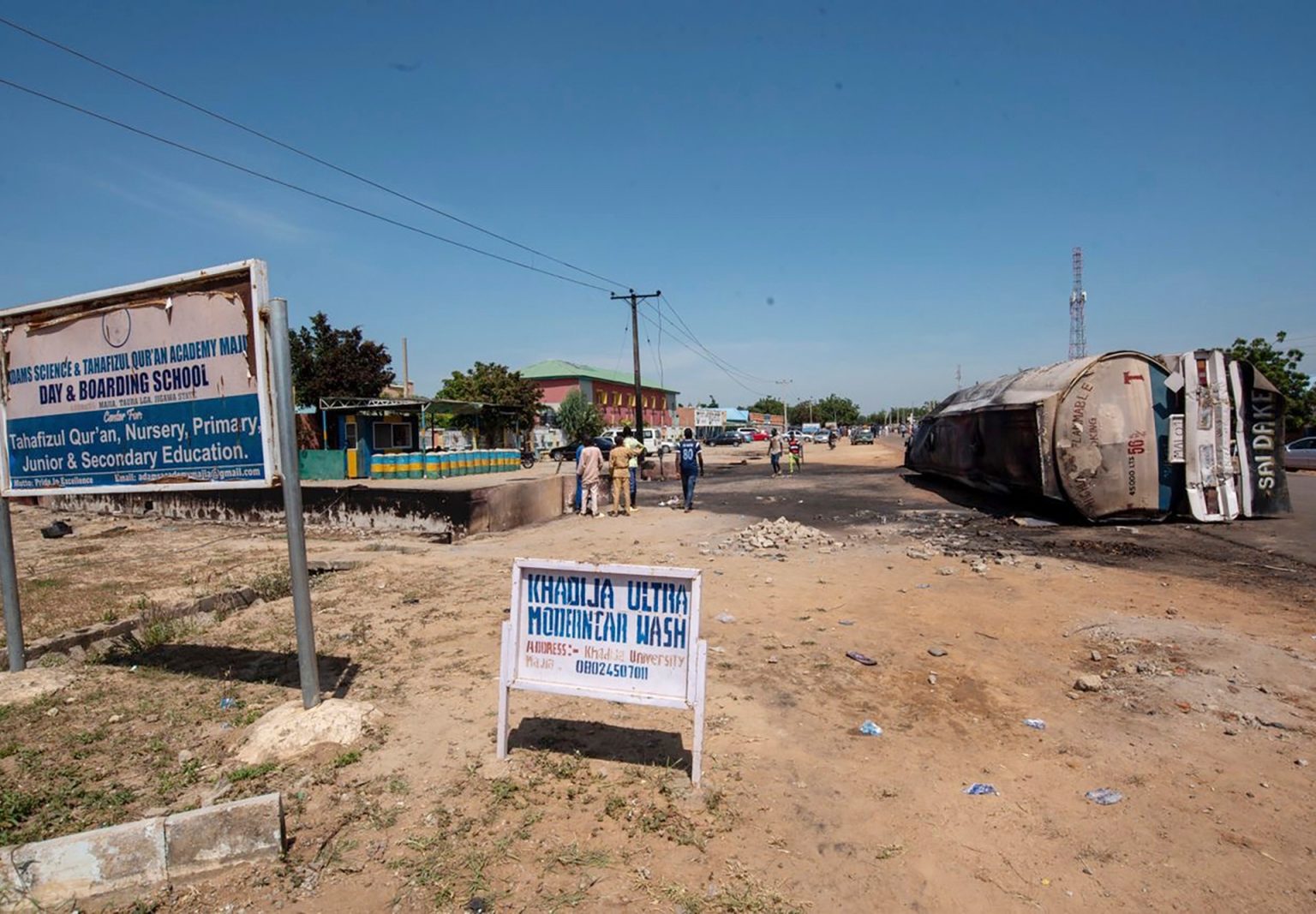In northwestern Nigeria, a tragic incident occurred on an expressway in Jigawa state, resulting in the deaths of more than 140 people and leaving dozens of others wounded. The incident involved an overturned fuel tanker, with residents rushing to the scene to collect fuel from the vehicle. This led to a massive explosion, igniting a fire that burned into the early hours of the next day. Haruna Mairiga, the head of Jigawa state Emergency Management Agency, reported that at least 147 people lost their lives in the tragedy.
The tanker, which had travelled a considerable distance from neighbouring Kano state, veered to avoid a collision with a truck in the town of Majia. As the tanker crashed and spilled its contents, residents from surrounding villages hurried to gather fuel for various purposes. Unfortunately, the situation quickly turned catastrophic as the tanker exploded, claiming the lives of many individuals on the spot. Authorities fear that the death toll may rise as the extent of the tragedy becomes more evident.
Emergency workers transported at least 50 wounded individuals to local hospitals for treatment in Ringim and Hadejia towns. The Nigerian Medical Association issued a call for doctors to assist at emergency rooms to manage the influx of patients, while lawmakers in the Senate observed a minute of silence in honor of the victims. Vice President Kashim Shettima expressed the need for a safety review and announced the federal government’s commitment to providing support to those affected by the disaster.
Truck accidents, particularly involving fuel tankers, are unfortunately common on Nigeria’s main roads due to factors such as reckless driving, poor road conditions, and vehicle maintenance issues. Just the previous month, another tragic incident resulted in 48 fatalities after a fuel tanker collided with a truck in Niger State. The Federal Road Safety Corps reported that in 2020 alone, there were 1,531 petrol tanker crashes leading to 535 deaths and injuries to 1,142 individuals.
The alarming frequency of tanker explosions underscores the urgency of addressing safety regulations and enforcing stricter protocols to prevent such devastating incidents. Despite the risks involved, residents often attempt to siphon off fuel following accidents, contributing to the high casualty rates. Furthermore, the economic crisis in Nigeria has exacerbated the demand for fuel, making it a precious commodity and intensifying the consequences of such disasters. The Nigerian National Petroleum Company’s recent price hike for petrol has added to the challenges faced by the population, highlighting the critical need for improved safety measures and crisis management strategies.
In the aftermath of the Jigawa state tragedy, the nation is mourning the loss of lives and grappling with the devastating impact of the explosion. As the emergency response efforts continue, there is a renewed call for comprehensive safety initiatives, road maintenance measures, and public education campaigns to prevent similar incidents in the future. The collective responsibility of authorities, emergency services, and the community at large is crucial in ensuring the safety and well-being of the people of Nigeria.













